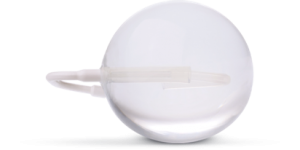Obesity and migraines seem to enjoy a hand-in-hand relationship. Is this a valid observation or does each condition exist separately from the other? Assuming that you are a migraine sufferer, could losing excess weight help to alleviate such crippling symptoms? Before addressing these questions, it is wise to take a look at some of the theories behind migraines themselves.
What Actually is a Migraine?
Migraines are often classified as extremely severe headaches. Often presented as pain on one side of the head or face, this condition can last for minutes, hours or even days at a time. Other common symptoms include nausea, a lack of appetite, vomiting, and increased sensitivity to certain stimuli (light and sound are the most common). Statistics have shown that 20 per cent of women experience migraines while approximately one in every 15 men have reported this condition.
The causes of migraines are still being debated. Genetics is a powerful component, as up to half of those who report symptoms have at least one relative who is prone to migraines. Changes in certain brain chemicals (known as neurotransmitters) as well as increased cranial pressure due to the expansion of blood vessels might also trigger an episode. However, it should be stressed that research is still ongoing.

The Link Between Obesity and Headaches
Let us now take a brief step back. What about obesity and headaches? This is an important issue to raise before moving on to discuss possible migraine treatment and weight loss. Overweight individuals will also often suffer from hypertension. In turn, this can lead to greater intracranial pressure. When the blood within the brain begins pressing on nerves, headaches and even migraines can develop. This is known as idiopathic intracranial hypertension (IIH).
However, another possible link has recently come to light. The bodies of obese men and women produce certain inflammatory hormones. These are primarily found within fat cells. Once released into the body, they can cause an increased perception of pain. So, any headaches and migraines will appear to be more severe and debilitating.
Finally, obese individuals are less likely to maintain an active lifestyle. Some research suggests that a buildup of toxins in and around the brain may increase the chances of developing migraines (as these toxins would normally be excreted via metabolic processes such as heightened respiratory rates and sweating).
Can Losing Weight Help to Lessen the Severity of a Migraine?
Addressing this question will first take for granted that there is a concrete commonality between obesity and migraines. So, could losing weight help to improve such a frustrating condition?
Studies seem to suggest that this is indeed the case. Those who have lost weight report that the number of days per month attributed to migraines decreases. There are several proposed reasons behind these observations:
- Physical exercise releases pain-killing hormones.
- These very same activities increase circulation and decrease blood pressure over time.
- Healthy individuals are less likely to suffer from hypertension, one possible cause of a migraine.
Furthermore, adopting a nutrient-rich diet and reducing one’s overall caloric intake can help to combat several other serious conditions. Examples include adult-onset diabetes, heart disease, stroke, and poor circulation.
Weight-Loss Options for Migraine Sufferers
Migraine treatments and weight loss can be pursued as two separate goals or combined into a single lifestyle plan. The main point here is to develop a comfortable routine that does not place your body under an undue amount of stress. Remember that increased blood pressure could actually trigger a migraine in some individuals. There are likewise specific foods that may be able to help with migraines while trimming away those kilos. Some substances to consider include:
- Foods rich in magnesium (tuna and dark leafy greens).
- Substances high in omega-3 fatty acids (salmon, nuts and legumes).
- Eggs and non-starchy vegetables (two components of a ketogenic diet).
Additionally, remaining hydrated throughout the day has been shown to reduce symptoms; dehydration is often a trigger.

Using All of the Options at Your Disposal
A final potent strategy to consider involves the Spatz3 adjustable gastric balloon. This is a particularly prudent approach if other weight-loss techniques have failed to produce the desired results. You can control your appetite, consume fewer calories and ultimately, decrease your body mass index.
Although there may be no cure at the present time, understanding obesity and migraines in terms of their relationship is a great way to keep your symptoms at bay.


